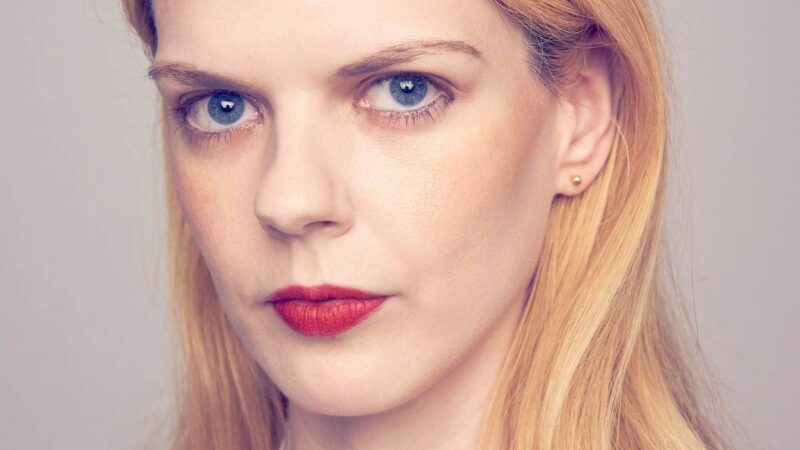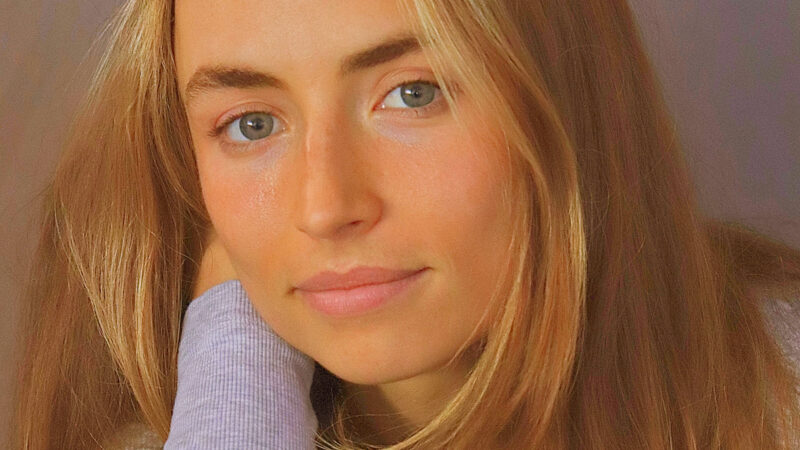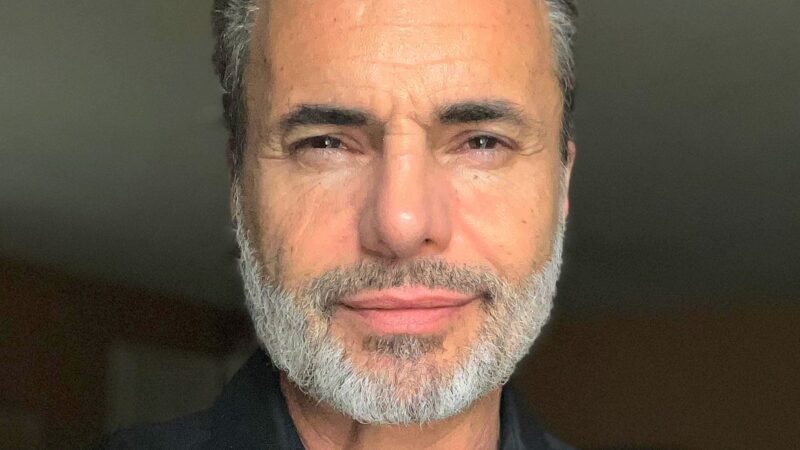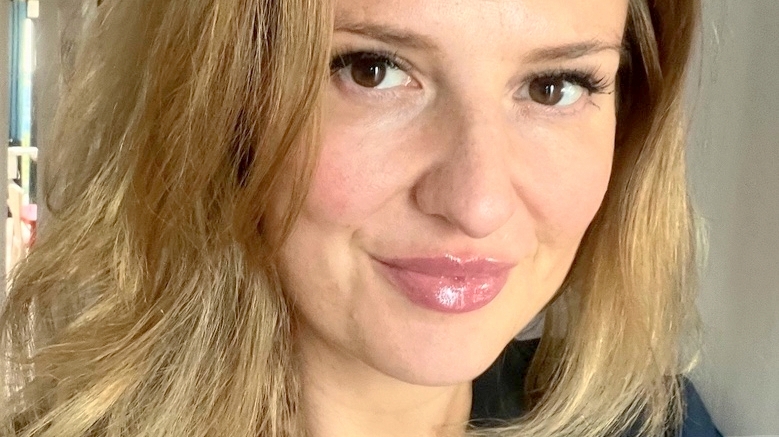
indieactivity: How did you get into directing? How would you describe your style?
Gemma Creagh (GC): Directing is new for me. I have always been a writer… and a more visually leaning one at that. Before I got into film, and even as a child, I’d drawn graphic novels and loved to tell stories with images, even if the intended audience was just me. Writing is about building worlds, while directing is a different skill altogether in realising them.
It’s reacting to what’s happening, picking a team, working with them, making creative decisions on the fly, being practical, and trying to make sure our actors are as far away from the chaos and as well looked after as possible. I did direct a few things straight out of college, but over the past few years, I’ve been working on developing longer-form projects as a writer and have been firmly behind a keyboard. It has been a very enjoyable experience to direct, and I’m hoping to do it again quite soon. My personal style would probably be dry humour covering up anger or pain.
Who is Conveyance for? Who do you think would enjoy it the most?
Gemma Creagh (GC): It’s for me, I guess, and people like me, who love horror, genre, and comedy. It’s for people who might have had a crap time with roommates, who’ve had a tough relationship with a parent, or who are in a relationship and finding it’s more complicated merging their lives than rom coms can lead you to believe. And fans of Fair City – if you’re in Ireland. We have a brilliant cameo from one of our nation’s soap stars.
The Official Trailer for Conveyance Directed by Gemma Creagh
How long did it take to shoot the entire film?
Gemma Creagh (GC): Our main shoot was four days, on location in that gorgeous apartment in Dún Laoghaire. However, myself and my longtime friend and talented DOP Jaro Waldeck, spent another day shooting that grimy house in the opening sequence. It was vile. There was a tree growing inside it, and our whole skin itches after for hours. We also went and shot some externals ourselves and then did a half day of ad-libbing for our Love Island sequences with talented comedy actors Pius Ojo and Rachel Walsh in my mum’s back garden. So, it was really five days. And we could easily have had another.
How long was the post-production process?
Gemma Creagh (GC): It was a few weeks. Phil Shanahan, our editor, is a man I would recommend to anyone, especially people cutting horror. He’s a master of tension—he found beats and workarounds quickly and has an encyclopedic knowledge of the genre. He even did VFX for our haunting with our TV sequences, swinging lights, and spooky pot-boiling scenes.Then the sound mix saw Raygun’s Andy Kirwin bringing composer Natasa Paulberg‘s excellent fresh, metallic score in to build and finalise the tension. That was brilliant fun. I even got to try my hand at acting, being the other side of Janet’s (Aisling O’Neill) phone conversation in Raygun’s studio. At First Element, Natalia Witkowska worked with Jaro to elevate the visuals and provided us with that excellent grade. They not only brought that bright and bold aesthetic to the screen but also helped build the mood, and even hide our dodgy strings for the ouija board scene..
The film had a lot of talent working behind the scenes as DPs, sound designers, composers, etc. Why is diversity important both in front of and behind the camera?
Gemma Creagh (GC): First off the bat… diversity has proven benefits for everyone. According to a study by McKinsey, D&I Global Market Report, and People Management, diverse companies earn 2.5x higher cash flow per employee. Inclusive teams are over 35% more productive. Diverse teams make better decisions 87% of the time. What is a film set other than a collection of people making decisions on the fly? The more perspectives and breadth of experience in a room, the more likely a mistake will be picked up or a clever solution will be found.
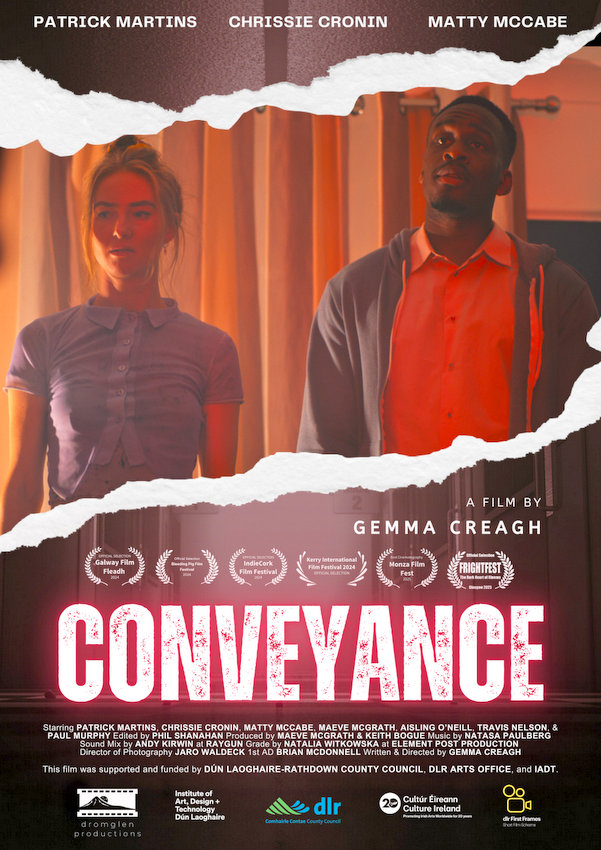
Personally, I’m from a working-class area, and I have always been annoyed when communities like mine are boiled down to trauma porn or exaggerated for comic effect with no insight. There have been so many times I’ve thought to myself: if there was ANYONE from an area like mine in a high-level creative role, a lot of the decisions made would be different. This isn’t always the case, of course—a director or writer can do their research and accurately represent people on screen—but when this doesn’t happen, it’s pretty obvious.
Also, I was the project manager of Women in Film and TV in Ireland and worked there for six years. A huge part of what we did was understanding the cost of bias and the benefits of overcoming it. Accurately representing the modern Ireland we come from has always been important to me. Also objectively, as an audience member, hearing the same stories told in the same way is, quite frankly, just boring.
What are your goals with Conveyance?
Gemma Creagh (GC): Firstly, I would love to get this short in front of more audiences. It’s on its festival run now and likely will be for the next year… so I’m waiting to hear back from some festivals. This is excruciating. Then, I would love to develop this into a feature. This would still maintain the humour but lean into the darkness a little more. In the longer-form version, Brian and Suzanne are broken up but still living under the same roof, something that has happened to a few people know, and is a horror all in itself.
What’s next for you? What are you working on right now?
Gemma Creagh (GC): I’ve got a few really exciting short film projects in the pot—we’re waiting to hear back from some funding bodies at the moment. So fingers crossed, I’ll be back to you in a few months about one of those. I also have Arts Council in Ireland support to develop a play with Barnstorm. Plus I’m working on writing another feature. The slate is full—it’s just about what bubbles to the surface next.
What would you recommend to a new director at the beginning of their journey? Any special courses, workshops, or helpful books they can read?
Gemma Creagh (GC): The more you learn, the better—watching films, watching interviews, reading scripts, seeing how other indie filmmakers with limited resources achieve what they do. Go to festivals, meet filmmakers. Then make films. It doesn’t matter if they are bad—that’s how you learn. Help other people with their films. Work in the industry if you can, even in a random role—so many people I know started off in production, post, or VFX. Learning to write is quite linear: you work on your craft, hone it, learn structure, and keep challenging yourself. Directing isn’t one simple skill. It’s a multitude, and as long as you are growing, learning and your upping ability in another field, it’s probably transferable. Finally, build your network. Wherever you are, go to meet-ups, meet other people making films.
Who is your favourite director? Why?
Gemma Creagh (GC): I have a few… Jordan Peele is a massive influence on me and on this film in particular—that humour, the darkness of the themes, the depth of his world.I have really enjoyed the work and voice of Emerald Fennell. Michaela Coel’s work is just incredible—I was floored by I May Destroy You. Even with his weird and violent worlds, Ari Aster manages to weave something really painful and truthful through his work. And Charlie Brooker—how he looks at subject matter and about being human in a modern world is just fascinating. Each of these creatives is saying something important in their work about race, relationships, gender, class, humanity… and doing it in a bold and interesting way. And despite this, they don’t pontificate—their characters are flawed and feel authentic.
What advice would you give directors around the world?
Gemma Creagh (GC): Right now, having made one short—I’m happy to take their advice. I’m listening, I’m watching what they do… and I very much hope to bring this into my work in the future
You can comment below or join is on Facebook or Instagram! Or join me on Twitter.
Socials
IMDb
LinkedIn
Twitter
Instagram
ACTOR INTERVIEWS

